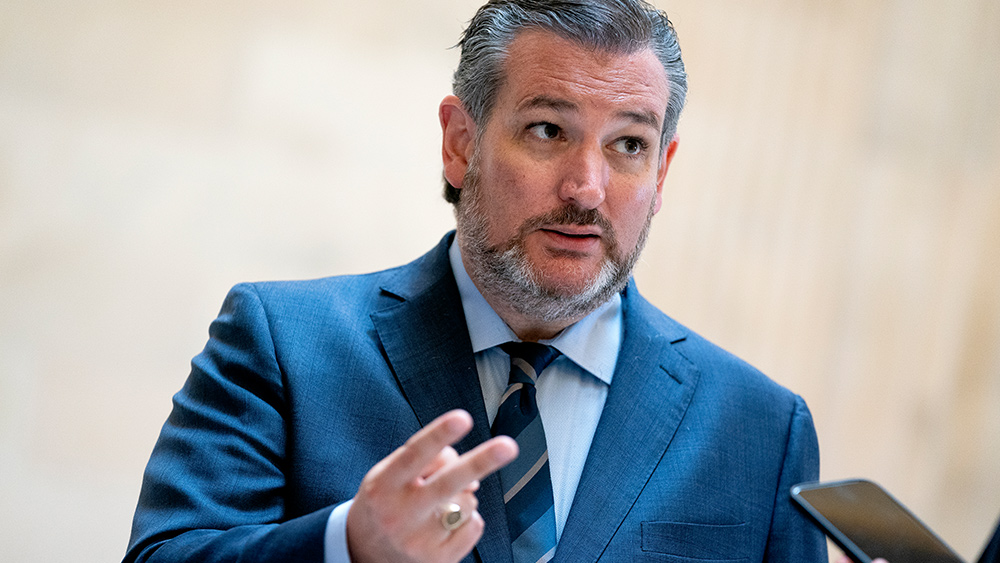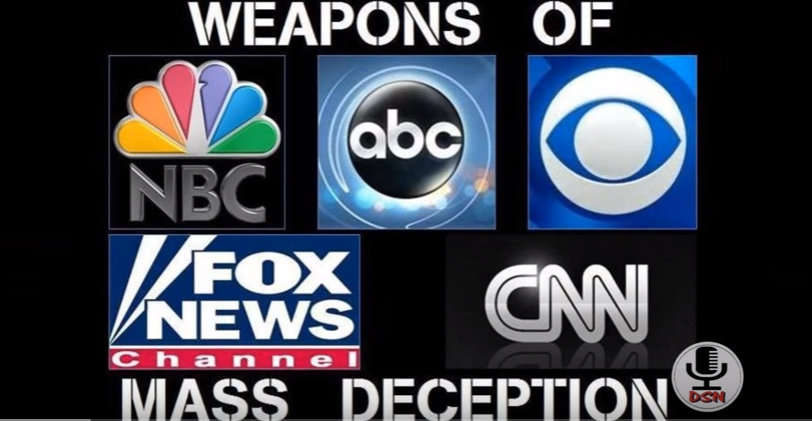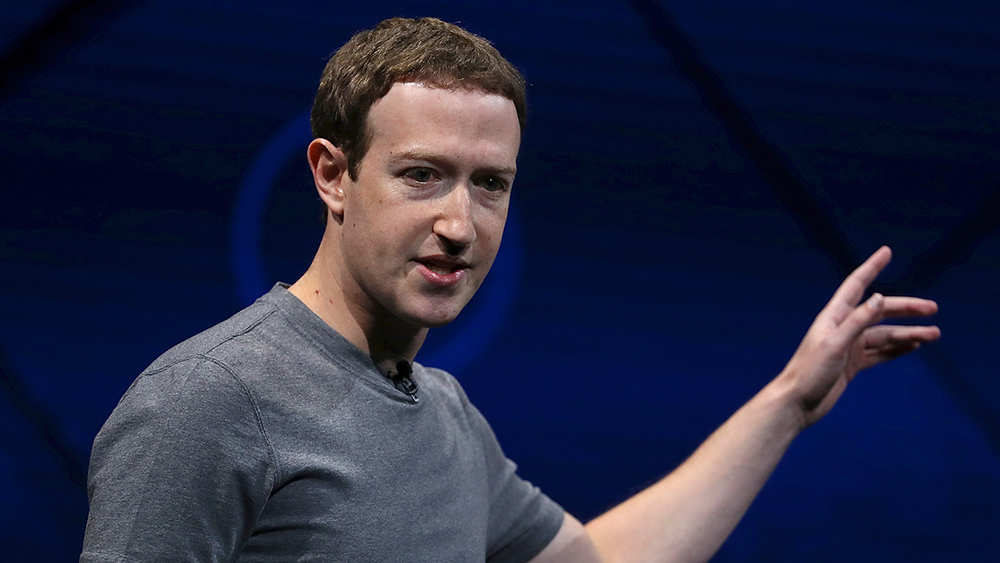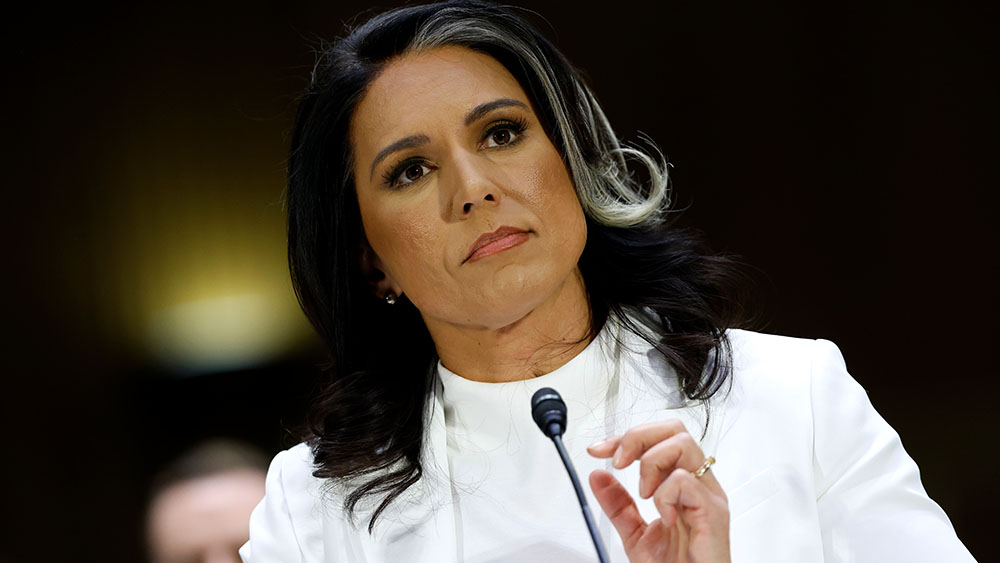U.S. closes controversial State Department office accused of pushing political censorship under Biden
04/20/2025 / By Belle Carter
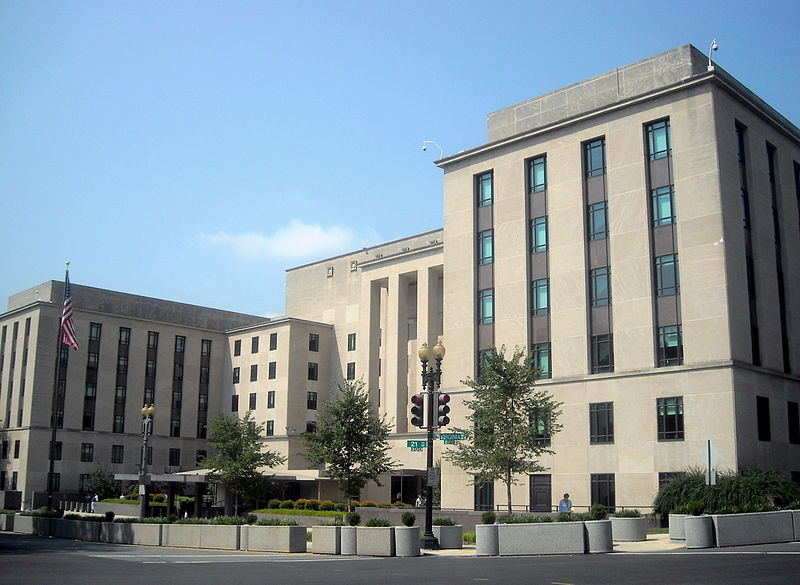
- Secretary of State Marco Rubio announced the U.S. State Department formally shut down the GEC, accusing it of misusing taxpayer funds to target conservative voices under the Biden administration. The agency was rebranded as Counter Foreign Information Manipulation and Interference (R/FIMI) in late 2023, but Rubio dismissed it as a “rebranded shell game” and declared the GEC “dead.”
- A years-long political feud over the GEC’s alleged suppression of conservative media, campaign-finance controversies and rebranding attempts preceded its closure. Congressional Republicans denied its $61 million 2023 budget in December 2023, forcing the shutdown after refusing to fund its operations.
- Created in 2016 to combat foreign disinformation like ISIS propaganda, critics argued the GEC shifted focus to U.S. domestic politics, targeting outlets like The Federalist and labeling figures such as journalist Ben Shapiro as “foreign agents.” Republicans condemned this as unconstitutional overreach.
- Figures like Elon Musk and journalist Matt Taibbi condemned the GEC’s actions, with Musk calling it the “worst offender in U.S. government censorship.” The closure reignited national debates over free speech, government overreach and media bias, with critics warning of politicizing counterintelligence efforts.
- While Democrats defended the GEC’s role in national security against foreign disinformation, the shutdown reflects deep partisan divisions. Experts question whether the agency’s functions persist under renamed programs, with the decision underscored by fears of eroding free speech or weakening anti-disinformation tools, signaling broader cultural and political tensions.
Secretary of State Marco Rubio announced Wednesday, April 16, that the U.S. State Department has formally shuttered the Global Engagement Center (GEC), an agency he accused of spending millions of taxpayer dollars annually on quashing “American voices” under the Biden administration.
The decision follows a years-long partisan feud over the GEC’s alleged misuse to suppress conservative media, rebrand itself to evade shutdown efforts, and campaign-finance controversies.
Rubio revealed the long-awaited closure of the office, which had recently been renamed the Counter Foreign Information Manipulation and Interference (R/FIMI). The GEC, inaugurated in 2016 under President Barack Obama, was initially tasked with combating foreign disinformation but later drew scrutiny for targeting American conservative outlets. Rubio called its actions “antithetical to the principles we should be upholding.” He accused the Biden administration of funneling taxpayer funds to label outlets like The Federalist and journalist Ben Shapiro as “foreign agents,” a charge Democrats have consistently denied.
The agency’s 2023 annual budget was $61 million, employing 120 staff, but congressional Republicans denied its funding last December. Despite its rebranding, Rubio declared victory: “GEC is dead. It will not return.” Rep. Derrick Van Orden (R-WI), a vocal critic, tweeted, “Excellent,” while Office of Management and Budget (OMB) Deputy Director Dan Bishop praised Rubio’s move as “the way.”
The GEC was established to counter violent extremism, per its original mission statement, but later drifted into domestic political terrain, critics argue. Rubio claimed its activities escalated to targeting “individual Americans,” contradicting its founding purpose to fight groups like ISIS.
Elon Musk and journalist Matt Taibbi had previously accused the GEC of overreach. Musk, in 2023, called it “the worst offender in U.S. government censorship,” while Taibbi argued the agency stifled debates over the pandemic by conflating conservative viewpoints with Russian disinformation campaigns. (Related: Trump administration takes on global censorship: A new frontier for free speech advocacy.)
House Republicans ramped up pressure last year, with members penning a letter to former Secretary of State Antony Blinken claiming the GEC exhibited a systemic bias toward “American progressives.” After refusing to greenlight its budget, legislative Republicans forced the agency to rebrand in December, a move Rubio criticized as a “rebranded shell game” to evade accountability.
Democrats, however, pushed back. Rep. Seth Moulton (D-MA) argued the GEC was crucial for national security against foreign disinformation. Biden allies framed their rebranding as a procedural shift to align with broader policy changes.
Broader implications and political polarization
The GEC scandal fits into a broader national debate over free speech, government overreach and media bias. Rubio’s move has been framed by allies as a triumph for First Amendment principles, while critics argue it risks eroding tools to combat genuine foreign threats.
The controversy echoes Cold War-era fears of government censorship, with historians noting parallels to McCarthyism’s anti-Communist purges.
“This isn’t just about an agency’s closure – it’s about who controls the narrative in the digital age,” said political analyst Sarah Kramer.
Rubio vowed the GEC’s “core functions will not return,” but some experts question whether its crackdown on disinformation will persist under renamed programs. The Biden team has not formally addressed his announcement, leaving political adherents to speculate whether free speech or national security will dominate future policy.
The GEC’s fate underscores a deep divide over whether the U.S. government should police domestic content at all, even when adversaries like Russia or China exploit such efforts to legitimize authoritarianism. As public distrust in institutions grows, the decision could signal increased partisanship – or a commitment to safeguarding democratic ideals.
The closure of the GEC marks a milestone in the Biden-Rubio era’s ongoing clash over executive power and free expression. While critics celebrate what they see as a rebuke of censorship, others warn of politicizing counterintelligence efforts. With debates over information integrity intensifying, Wednesday’s move may only further catalyze the culture war playing out inside the State Department – and the American psyche.
Watch the video below that talks about the Trump administration cracking down on censorship.
This video is from the NewsClips channel on Brighteon.com.
More related stories:
Trump’s FDA pick Makary vows to fight censorship, tackle toxic food additives.
Trump signs executive order to end federal censorship and protect free speech.
Trump cracks down on CISA, aims to end government censorship.
Sources include:
Submit a correction >>
Tagged Under:
Biden, Censorship, Donald Trump, First Amendment, foreign threats, free speech, GEC, Liberty, media bias, national security, Obama, overreach, politics, progress, speech police, thought police
This article may contain statements that reflect the opinion of the author
RECENT NEWS & ARTICLES
COPYRIGHT © 2018 SPEECHPOLICE.NEWS
All content posted on this site is protected under Free Speech. SpeechPolice.news is not responsible for content written by contributing authors. The information on this site is provided for educational and entertainment purposes only. It is not intended as a substitute for professional advice of any kind. SpeechPolice.news assumes no responsibility for the use or misuse of this material. All trademarks, registered trademarks and service marks mentioned on this site are the property of their respective owners.









